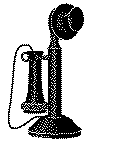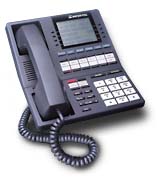| Message-ID: <20230401140837.GA1903151@telecomdigest.us>
Date: Sat, 1 Apr 2023 14:08:37 +0000
From: Bill Horne <malQRMassimilation@gmail.com>
Subject: TX: Copper Thieves Cut Lines Resulting in Phone, Internet
Outage in Oak Cliff
By Allie Spillyards • Published March 29, 2023
The signs of damage were clear as AT&T line crews worked throughout
the day Wednesday to restore phone service and internet to a southern
Dallas community after copper thieves wreaked havoc on utility lines.
“My understanding is that they’re using, for example, those bucket
trucks that they can perhaps go rent. Some are using ladders. So,
they’re very creative,” said Dallas City Councilwoman Carolyn King
Arnold.
https://www.nbcdfw.com/news/local/copper-thieves-cut-lines-resulting-in-phone-internet-outage-in-oak-cliff/3226063/
--
(Please remove QRM for direct replies)
|
| Message-ID: <20230401194234.GA1904802@telecomdigest.us>
Date: Sat, 1 Apr 2023 19:42:34 +0000
From: OKX Operations - NOAA Service Account <okx.operations@noaa.gov>
Subject: National Weather Service: Twitter API limits to possibly
affect NWS automated tweets
Subject: NWS New York, NY - Twitter API limits to possibly affect NWS
automated tweets - March 31, 2023
Date: Fri, 31 Mar 2023 18:06:49 -0400
From: OKX Operations - NOAA Service Account <okx.operations@noaa.gov>
Dear [NWS] Partners,
On Wednesday, Twitter announced that there will be a limit on the
number of automated Twitter posts (tweets) that a given account can
send utilizing their API service. This limit will be 1,500 per month
and 50 per 24-hour period. When implemented, the new limit will impact
every account that utilizes automated posting (e.g. this) of – but not
limited to – watches, warnings, and advisories.
NWS Communications is in contact with Twitter to convey the
anticipated impacts on our operations and our followers and to seek
clarification about whether and when this policy will apply to
NWS. NWS Public Affairs has prepared a media holding statement to
reply to media inquiries if the limit begins to affect our
operations. Questions on this topic can be directed to
nws.pa@noaa.gov. In addition, we are working on a national PNS (Public
Information Statement) and will provide it soon.
KEY MESSAGE: As always, communications via social media is a
supplemental service provided by NWS to extend the reach of NWS
information. Twitter feeds and tweets do not always reflect the most
current information for forecasts, watches, and warnings and you
should always have multiple means for receiving weather information
and alerts.
If you have any questions please feel free to contact me.
Thanks
Nelson
Nelson Vaz
Warning Coordination Meteorologist
NWS New York, NY
|
| Message-ID: <u0aqup$17l7$1@usenet.csail.mit.edu>
Date: 2 Apr 2023 02:57:29 -0000
From: "Garrett Wollman" <wollman@bimajority.org>
Subject: Re: The FCC Puts The Arm On a Puerto Rico Landlord
In article <20230402003706.GA1906300@telecomdigest.us>,
Bill Horne <malQRMassimilation@gmail.com> wrote:
> * I had to read the amount shown above three times before I believed
> * it. This dunning notice is so clearly an example of bureaucratic
> * arrogance and overreach
Nonsense.
> * possible: if I understand it, the FCC appears to be demanding that
> * the owner of a building take steps to stop a tenant, squatter, or
> * transient from using a ten-watt FM transmitter to "broadcast" to
> * local listeners
The PIRATE Act[1] (Pub. L. 116-109, passed by Congress and signed by
President Trump in 2020) authorizes penalties for unlicensed
broadcasting of up to $20,000 per day, with an overall limit of
$2,316,034,[2] and allows the FCC to fine the property owners where
transmitters are located in addtion to the station operators. The
legislation requires the FCC to conduct annual enforcement sweeps in
the top 5 markets for pirate activity and make an annual report to
Congress.
The specific language is codified at 47 USC 511(a):
Any person who willfully and knowingly does or causes or
*suffers to be done* any pirate radio broadcasting shall be
subject to a fine of not more than $2,000,000. (emphasis mine)
The same language is used in the implementing regulations, 47 CFR
1.80(b)(c). "Suffers to be done" allows for the FCC to go after
anyone who tolerates pirate activity on their property, although it's
implicit in the choice of verb that some knowledge on the part of the
landlord must be demonstrated -- but the FCC could easily force the
issue simply by serving the landlord with a Notice of Apparent
Liability. If the landlord does not then take action to evict the
pirate, the fines start racking up even if the FCC can't prove that
they knew (or should have known) about their tenant's activity prior
to receiving notice.
The FCC's procedure used to be more forgiving, in addition to the
fines having been lower: the Enforcement Bureau would previously have
issued a Notice of Unlicensed Operation prior to proceeding to a
Notice of Apparent Liability, but in the new legislation Congress
required them to dispense with this extra step.
-GAWollman
[1] Not to be confused with intellectual property legislation of the
same name passed in 2004.
[2] The actual legislation as enacted says "2,000,000" but elsewhere
in the U.S. Code, its is provided that all dollar amounts are to be
adjusted for inflation unless the law explicitly specifies otherwise.
--
Garrett A. Wollman | "Act to avoid constraining the future; if you can,
wollman@bimajority.org| act to remove constraint from the future. This is
Opinions not shared by| a thing you can do, are able to do, to do together."
my employers. | - Graydon Saunders, _A Succession of Bad Days_ (2015)
|



